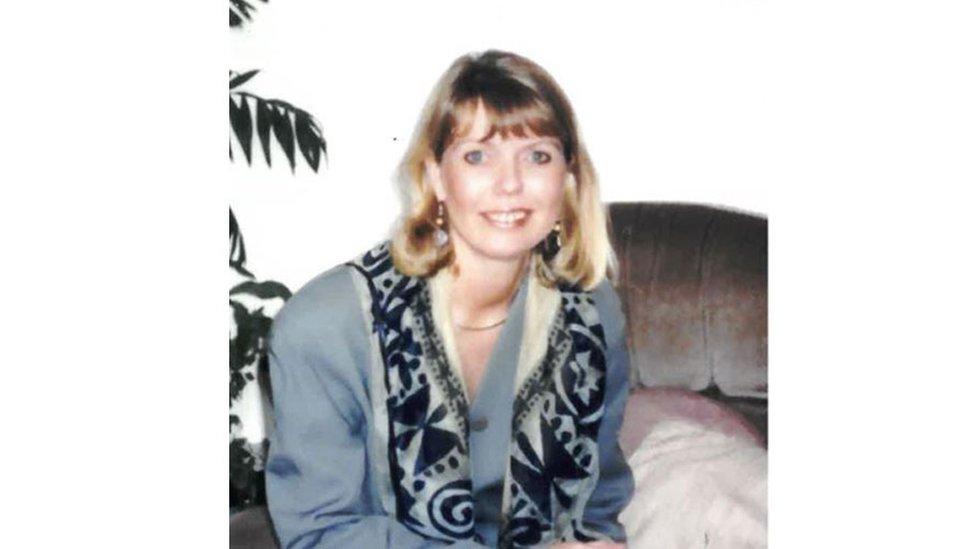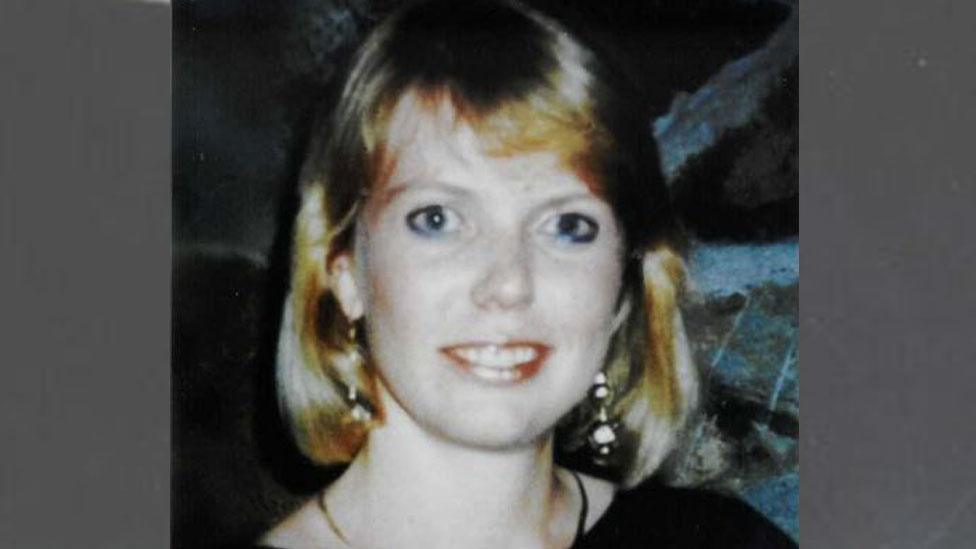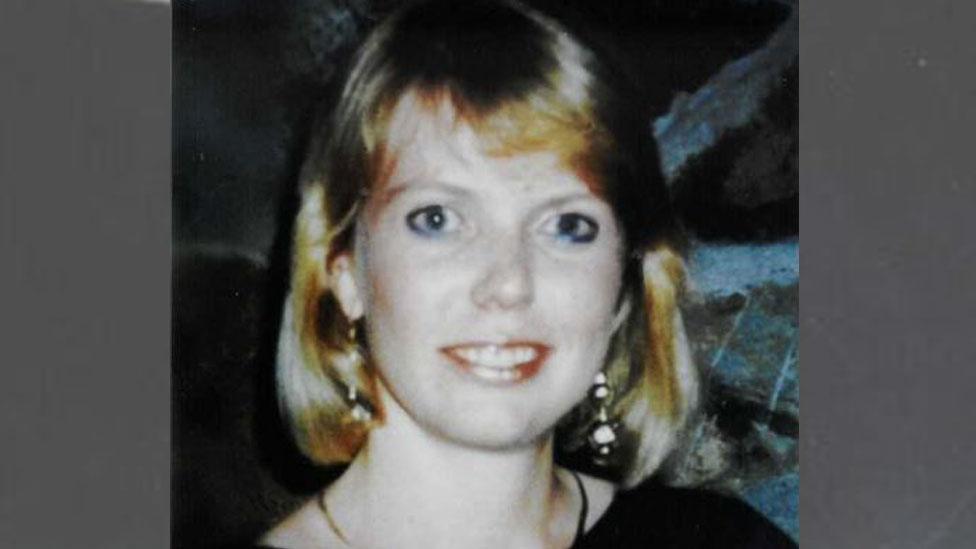Blood tests in chemotherapy death 'not done in time'
- Published

Siaron Lowis Bonds died two days after being admitted for chemotherapy
A consultant who treated a cancer patient who died following chemotherapy complications has told an inquest blood tests were not done in time.
Siaron Lowis Bonds, 26, was treated at Ysbyty Gwynedd in Bangor for blood cancer in 1994 but died two days after her chemotherapy treatment began.
If blood tests had been done two hours earlier, complications could have been diagnosed sooner, the inquest was told.
New evidence and law changes have prompted the hearing in Caernarfon.
On Monday, the inquest heard Ms Bonds started receiving chemotherapy for high grade non-Hodgkins lymphoblastic lymphoma at the hospital on 7 September 1994.
She died from acute tumour lysis syndrome (ATLS), which can happen when the rapid breakdown of cancer cells causes substances to be released into the bloodstream more quickly than the kidneys can remove them.

Siaron Bonds was treated in the specialist cancer ward at Ysbyty Gwynedd in Bangor
Prof Nick Stuart, who treated Ms Bonds, told the inquest that on 9 September 1994, the day Ms Bonds died, blood tests had not been done at the time they were supposed to be and he had had to request they were taken during his morning round.
He said: "I felt that that was a critical piece of information and asked for an urgent blood test to be done.
"If blood tests had been done two hours earlier, diagnosis might have been possible two hours earlier and action could have been taken earlier."
He continued: "The missed blood tests represented a failure of care. The hospital should have had a system to ensure these were done. Nursing observations weren't done as quickly as they could have been."
'Errors and omissions'
Expert witness Dr Chris Miller, a consultant haematologist who reviewed the evidence at the coroner's request, said: "If she'd had more frequent blood tests, and if everything had been in place with adequate fluid balance and she'd been monitored more frequently, it would have affected the outcome.
"On the balance of probabilities, if she'd had optimal therapy as I described, I think she would have survived."
The hearing previously heard from Ms Bonds' mother, Nerys, who said that when she raised concerns over her daughter's condition that morning, Prof Stuart had told her Ms Bonds was vomiting because of anxiety, just hours before she died.
He told the hearing: "I don't recall saying that, though I did record in Siaron's notes that she was an anxious young lady. That was completely understandable.
"I don't think I attributed everything to anxiety; nausea and vomiting from the chemotherapy with anxiety as a secondary issue."
Ms Bonds was diagnosed with ATLS at about 13:45 that day and died the same afternoon, the inquest heard.
Prof Stuart agreed Ms Bond's care "fell below an acceptable standard", although he did not accept all the conclusions of a report into her death by Healthcare Inspectorate Wales in 2008.
The report found "a series of errors and omissions by staff contributed directly to her death from a predictable and treatable consequence of chemotherapy", the inquest was told.
The ongoing inquest continues.
- Published22 July 2019
